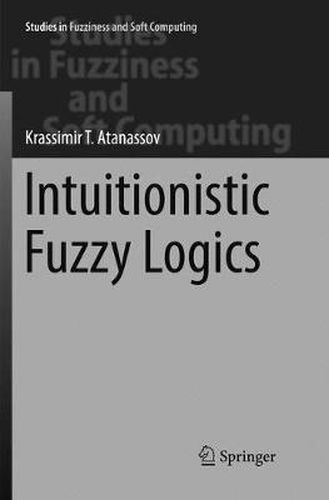Readings Newsletter
Become a Readings Member to make your shopping experience even easier.
Sign in or sign up for free!
You’re not far away from qualifying for FREE standard shipping within Australia
You’ve qualified for FREE standard shipping within Australia
The cart is loading…






This title is printed to order. This book may have been self-published. If so, we cannot guarantee the quality of the content. In the main most books will have gone through the editing process however some may not. We therefore suggest that you be aware of this before ordering this book. If in doubt check either the author or publisher’s details as we are unable to accept any returns unless they are faulty. Please contact us if you have any questions.
The book offers a comprehensive survey of intuitionistic fuzzy logics. By reporting on both the author’s research and others’ findings, it provides readers with a complete overview of the field and highlights key issues and open problems, thus suggesting new research directions. Starting with an introduction to the basic elements of intuitionistic fuzzy propositional calculus, it then provides a guide to the use of intuitionistic fuzzy operators and quantifiers, and lastly presents state-of-the-art applications of intuitionistic fuzzy sets. The book is a valuable reference resource for graduate students and researchers alike.
$9.00 standard shipping within Australia
FREE standard shipping within Australia for orders over $100.00
Express & International shipping calculated at checkout
This title is printed to order. This book may have been self-published. If so, we cannot guarantee the quality of the content. In the main most books will have gone through the editing process however some may not. We therefore suggest that you be aware of this before ordering this book. If in doubt check either the author or publisher’s details as we are unable to accept any returns unless they are faulty. Please contact us if you have any questions.
The book offers a comprehensive survey of intuitionistic fuzzy logics. By reporting on both the author’s research and others’ findings, it provides readers with a complete overview of the field and highlights key issues and open problems, thus suggesting new research directions. Starting with an introduction to the basic elements of intuitionistic fuzzy propositional calculus, it then provides a guide to the use of intuitionistic fuzzy operators and quantifiers, and lastly presents state-of-the-art applications of intuitionistic fuzzy sets. The book is a valuable reference resource for graduate students and researchers alike.